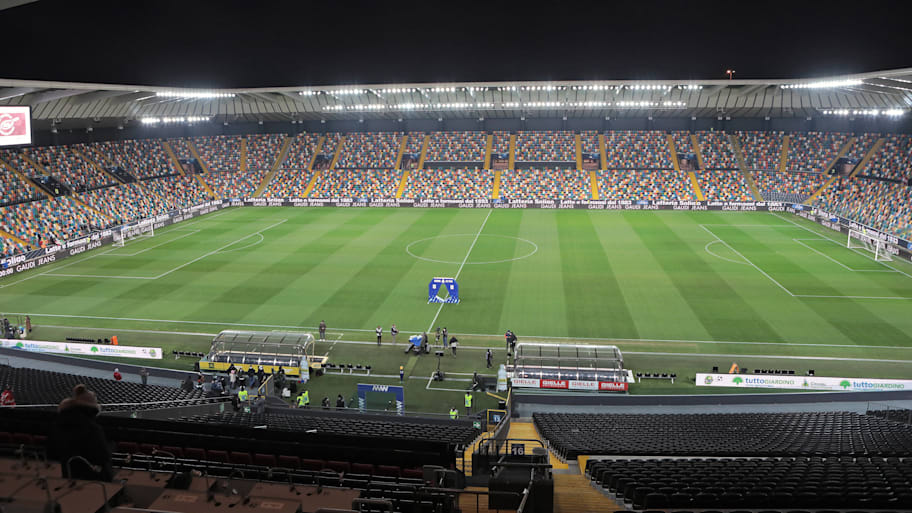
Like its domestic cousins, the UEFA Super Cup has long battled to establish itself as a major trophy.
There’s no denying that the two competing clubs have required to win something hugely significant in order to take part in the annual fixture, but whether the Super Cup is of similar importance in isolation is another matter entirely.
Still, the bout has been around for decades, changing form at the start of the 21st century into what it’s recognised as today. The 2025 fixture, contested between Paris Saint-Germain and Tottenham Hotspur, who have one appearance between them, is the 50th iteration, so there’s plenty of history to delve into.
Here’s everything you need to know about the UEFA Super Cup.
UEFA Super Cup History
Our first European Super Cup. 🥇#OTD | 𝟏𝟗𝟕𝟑 pic.twitter.com/xYzMRDfNnd
— AFC Ajax (@AFCAjax) January 24, 2021
Dutch reporter Anton Witkamp is largely responsible for the creation of this fixture in 1971.
Despite the presence of the European Cup, which was then almost exclusively competed between league champions from across Europe, Witkamp was keen to provide a stiffer challenge for the all-conquering Ajax side of the time.
From that, the idea of the European Cup winners facing off against the European Cup Winners’ Cup holders was established. UEFA didn’t officially recognise the contest until 1973, with the very first iteration, won by Ajax, instead sponsored by Dutch media outlet De Telegraaf, for whom Witkamp would later become sports editor.
The fixture wasn’t held in 1974, 1981 and 1985 for different reasons, including scheduling issues and the ban of English clubs from European competitions, but has been staged every year since 1986. It was a two-legged affair until 1997, and the discontinuation of the Cup Winners’ Cup has meant the UEFA Cup/Europa League winners have participated since 2000.
How is the UEFA Super Cup Host Decided?

When the Super Cup was played over two legs, each of the participating teams played host. Once it became a one-off affair, the Stade Louis II in Monaco served as the regular host between 1998 and 2012.
Since 2013, a different host city and stadium have been selected every year. Recent venues include Budapest’s Puskás Aréna, Helsinki’s Olympic Stadium and Warsaw’s Stadion Narodowy. The Stadio Friuli, home of Udinese in Serie A, will host in 2025.
The Super Cup host is ultimately decided by UEFA’s executive committee, with the governing body overviewing a list of interested members every year. Those who pass through the initial phase must then submit their bid before a set deadline, laying out potential venues which are visited by UEFA.
The executive committee then makes its choice from the successful bidders.
UEFA Super Cup Prize Money
The two competing clubs have already made plenty via their respective successes in Europe last season, with PSG earning approximately £21.6 million ($29 million) for winning the Champions League final alone.
Brennan Johnson’s stud made Tottenham £5 million ($6.73 million) richer, as they defeated Manchester United in Bilbao. All Champions League participants for 2025–26 earn a guaranteed £15.7 million ($20.7 million), too.
Since 2024, the Super Cup winners have earned £4.3 million ($5.8 million) and the losers £3.5 million ($4.7 million).
Most Successful UEFA Super Cup Teams

42 different teams have played in the UEFA Super Cup since 1973, and, if you include Tottenham in 2025, there have been four debutants since 2021.
Unsurprisingly, no team has had more success than perennial European champions Real Madrid, who are six-time winners and last triumphed in 2024. Since 2009, a Spanish side has prevailed on 11 separate occasions, with Barcelona five-time victors and Atlético Madrid lifting the trophy three times.
AC Milan, Liverpool, Chelsea, Bayern Munich, Ajax, Anderlecht, Valencia and Juventus are the other multi-time winners. Hamburg are the only side to play in the Super Cup more than once and not win, while Europa League masters Sevilla have lost in six of their seven appearances.
READ THE LATEST SOCCER NEWS, TRANSFER RUMORS AND MATCH REACTION
This article was originally published on www.si.com as What is the UEFA Super Cup: History, Prize Money, Format.







